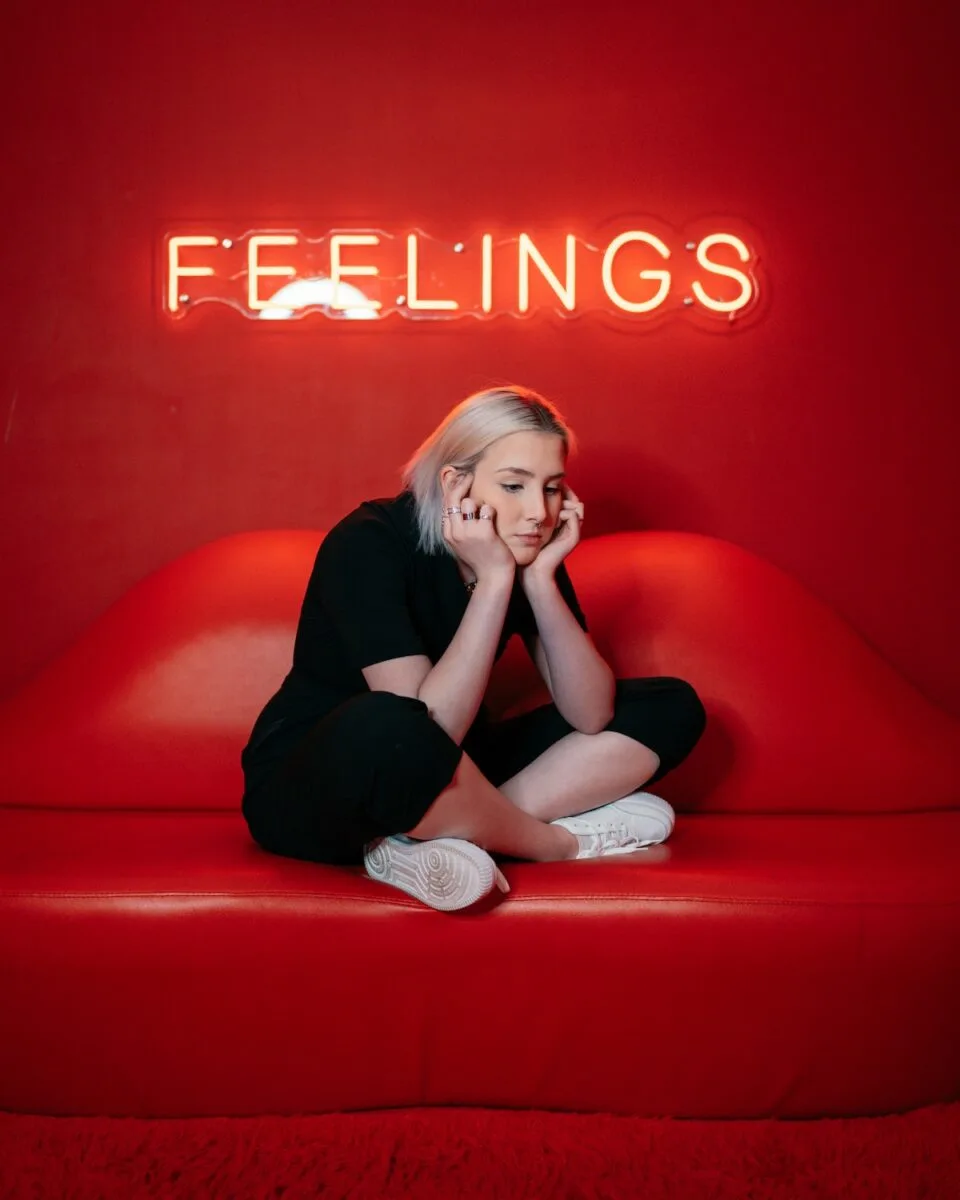Navigating the delicate balance between love and friendship can be a tricky endeavor. It’s not always easy to stop loving someone, especially when you’ve shared deep connections and meaningful experiences. However, as life takes its course and situations change, you might want to end a romantic relationship while maintaining a strong friendship bond. This article will discuss how to stop loving someone but stay friends, providing valuable insights and practical tips to help you transition from a romantic partnership to a healthy and supportive friendship.
Whether you both mutually decided to end things or circumstances forced you to part ways, it’s crucial to approach the situation with understanding, openness, and self-awareness, ensuring that both of you can continue caring for one another in a non-romantic capacity.
Taking this journey can be challenging, but with the right mindset and guidance, you can successfully reshape your relationship into a long-lasting friendship that will weather the tests of time. So, strap in, and be prepared to explore and adapt to these changes with your soon-to-be friend.
Understanding Your Feelings and The Situation
Acknowledging and understanding your feelings when going through heartbreak or unrequited love is essential. Accepting the love you feel for someone is vital in this process. Avoid forcing yourself to feel differently, as doing so may only prolong your suffering. Instead, embrace self-acceptance and develop a healthy way to cope with your emotions.

During your emotional journey, consider why you fell in love with this person in the first place. Reflect on the shared experiences that led you to feel this way and how it affected both of your lives. It is also crucial to understand that these emotions do not negate the possibility of maintaining a friendship with this person.
Remember that you are not alone in your struggle. Many people face unrequited love, heartbreak, or emotional disconnects in their relationships. Allow yourself to grieve, but always focus on self-compassion and understanding.
One way to approach this situation is to set clear boundaries with the person you love. Establishing limits can prevent feelings of stress, anger, resentment, and disappointment that may arise if these lines are continuously crossed or disregarded. Doing so can help you remain friends, while giving yourself the necessary space to heal emotionally.
Feeling fear, sadness, or doubt is normal when faced with the prospect of moving on and stopping loving someone. You may worry about being single, finding someone else, or even what others might think. These fears are natural, but don’t let them dictate your decisions or stop you from healing.
Keeping communication lines open with your friend is essential to stop romantic love and maintain a friendship. Be honest about your feelings, and together, try to navigate the challenges of transitioning from a romantic love to a platonic one.
Remember that your situation is unique, and there is no one-size-fits-all solution. However, by understanding your feelings and the situation, you can begin to take steps toward building a new and rewarding friendship.
Why Staying Friends Can Be Difficult
Set Clear Boundaries
Staying friends with someone you have romantic feelings for can be challenging. To make it easier, establish clear boundaries in your friendship to prevent mixed signals. Discuss your expectations so you know how to behave in different situations.
Analyze Your Emotions
It’s vital to analyze your emotions honestly. Ask yourself why you want to stay friends with this person and if you can handle seeing them with someone new. Reflecting on these emotions can help you decide whether remaining friends is your best choice.
Allow Yourself to Grieve
Grieving is essential in accepting the change in your relationship. Allow yourself to feel the sadness and loss. Acknowledging your emotions is the first step in moving on and maintaining a healthy friendship.

Acceptance is Key
Accept that your romantic relationship is over. Only when you genuinely believe this can you cultivate a genuine friendship. Remember that love is fluid and can evolve into different forms like friendship.
Don’t Trash Talk About Them
Avoid speaking poorly about your friend behind their back, as it can hurt your friendship and prevent you from moving forward. Remember the positive qualities you appreciate in them, and choose to focus on those instead.
Give Them Space
Your presence in your friend’s life must be supportive, not suffocating. Giving them space can help reduce your feelings towards them and strengthen your affiliation.
Spend Quality Time Apart
Stepping away from your friend can help you gain clarity and ensure you are not overly reliant on their support. This space will give you a chance to redefine your friendship.
Stop Daydreaming About Them
Although it’s tempting to imagine what could have been, persistently daydreaming about your friend will hinder your progress in moving on. Redirect your thoughts to focus on other areas of your life.
Learn to Love Yourself
Focus on your well-being and self-love. Engaging in activities you enjoy, seeking self-improvement, and surrounding yourself with supportive individuals will help you feel fulfilled and content being single.
Prioritize Other Aspects of Your Life
Redirect your energy towards your personal and professional goals. Building a fulfilling life outside of your relationship can help reduce your attachment.
Date Other People
Meeting new people and exploring romantic connections with others can remind you that there is life outside of your past relationship.
Keep Communication Open
Maintain open and honest communication with your friend. Share your feelings and concerns about the friendship to ensure both parties are on the same page.
Don’t Blame Yourself
Please don’t blame yourself for your feelings; it can further strain your friendship. Accept your emotions as they are and continue working on building a solid friendship based on trust and respect.

Finding Closure and Learning to Let Go
Finding closure is essential when you want to stop loving someone but remain friends. To achieve this, you must begin by recognizing the signs of a toxic relationship and the frustrations surrounding it. Understanding that it’s best to let go is the first step in moving forward.
Acknowledge the truth of the situation. If the relationship was causing you or the other person pain or holding you back, it’s time to accept that reality. Embrace the lessons you learned from this experience and appreciate your shared moments. Be grateful for what you gained and ready to seek a healthier future relationship.
To heal and find closure, self-care is crucial. Focus on your well-being and indulge in activities that make you happy. Redirect your energy toward personal growth and self-improvement. This could include exercising, joining clubs, or engaging in creative projects – anything that helps you channel your emotions in a positive direction.
During this healing process, avoiding distractions or falling into old habits rooted in addiction or fear is important. These may only cause you to decide based on short-term comfort rather than long-term growth. Stay strong in your conviction to move forward.
Communication is vital to the transition from a romantic relationship to a friendship. Ensure you both have a mutual understanding of the boundaries and expectations as friends. Be honest about your feelings, and be open to their thoughts and perspectives. This will help create a strong foundation for your friendship.
Managing your expectations and appearance during this process is crucial. Don’t expect your friendship to be perfect. Understand that there might be ups and downs and that it will take time for both parties to adjust. Avoid acting out or trying too hard to impress others.
Embrace acceptance and learn to let go of the past. Recognize that your feelings will eventually subside and that it’s normal for this to take time. Remain patient with yourself, and remember to practice self-compassion when frustration and sadness arise.
Finally, be open to the idea of getting back in touch with your own needs and desires. As you gain more peace and closure, you’ll be better equipped to care for each other as friends. This new dynamic will ultimately allow both of you to grow and flourish in your individual lives while still maintaining a meaningful connection.
Dealing with Jealousy and Other Emotions
Feeling jealous or experiencing other intense emotions can emerge when transitioning from a romantic relationship to a friendship. You must acknowledge and manage these feelings. Being honest with yourself and your friend helps build a strong foundation for the new phase of your relationship.
While dealing with jealousy, try to focus on the positive aspects of your connection. Recall the reasons why you want to remain friends with this person. Strengthen your bond by finding common interests and nurturing your friendship. Engage in activities and conversations that make you smile and feel more comfortable with your new dynamic.
Communication is crucial in overcoming jealousy and other emotions. Share your concerns and feelings with your friend once in a while so that they are aware of your state of mind. Trust is crucial; believing that your friend is supportive and understands your journey will make it easier for both parties to cope with the emotions at play.
Remember that establishing boundaries is essential during this transition. Both of you need to be aware of the limits and actions that could evoke uncomfortable feelings or misunderstandings. For instance, avoiding overly personal conversations or physical affection could help keep uncomfortable feelings at bay.

To maintain a healthy mindset, invest some time in self-reflection. Explore your emotions and internal struggles to understand better what triggers feelings of jealousy, sadness, or anger. This process will help you grow as an individual and contribute positively to building your new friendship. Moreover, practicing mindfulness and focusing on the present moment can aid in keeping those emotions in check.
In summary, dealing with jealousy and other emotions as you transition from romantic partners to friends can be challenging. Be open and honest with yourself and your friend, establish boundaries, and keep the lines of communication open. Remember to practice self-care through self-reflection or mindfulness to cultivate a foundation for a solid and lasting friendship.
Closing Thoughts: How to stop loving someone but stay friends
It’s essential to remember that stopping loving someone and remaining friends is challenging yet achievable. It requires time, self-reflection, and a clear understanding of your emotions and boundaries. You may face moments of doubt or confusion, but staying persistent and focusing on your well-being is essential.
As you embark on this journey, remind yourself that it’s okay to have mixed emotions and that healing is a gradual process. Acknowledge your feelings and reflect on the aspects of your relationship you wish to maintain. Taking one step at a time and setting healthy limits can help you effectively transition from a romantic relationship to a platonic friendship.
Moving forward, it’s crucial to communicate openly and honestly with your former partner. Maintain respect and empathy while discussing your feelings, expectations, and concerns. A strong foundation built on trust will help you navigate this transition and establish a meaningful friendship.
Finally, practice self-care and prioritize your mental and emotional health. Surround yourself with supportive friends and engage in activities that bring joy and positivity to your life. Remember, stopping to love someone but staying friends is a transformation that requires patience and self-compassion. With persistence and the right mindset, building a lasting, healthy friendship after a romantic relationship is possible.
Frequently Asked Questions
It’s essential to be honest and evaluate your emotions to remain friends with someone you have feelings for. Acknowledge your feelings, but set boundaries and focus on the positive aspects of your friendship. Be patient, and give yourself time to adjust to seeing your friend in a non-romantic light.
Managing your feelings while staying friends is challenging but possible. Make sure to prioritize self-care and keep up with your interests and hobbies instead of focusing solely on your feelings for your friend. If needed, create space between you two and surround yourself with supportive people who can help you through this process.
Maintaining a friendship when feelings are involved can be difficult, but setting clear boundaries and engaging in open communication can help. Be prepared to accept that the object of your affection might not feel the same way, and focus on finding and appreciating the value in your friendship.
To control your emotions while preserving your friendship, redirect your thoughts whenever you slip into a romantic mindset. Instead, focus on why your friend is important in your life and the unique qualities that make your friendship special. Additionally, don’t be afraid to seek the support of other friends or even a mental health professional if needed.
Yes, people can remain friends despite having romantic feelings for each other. Clear communication and boundaries are essential to make this work. However, it’s important to be prepared that maintaining a friendship may be challenging, and it’s crucial to prioritize your emotional well-being.
Coping with unrequited love in a friendship can be difficult, but self-care is important during this time. Acknowledge your feelings without judgment, and allow yourself to feel the full emotions associated with loss. Seek support from friends or a mental health professional, and focus on activities and interests that bring you joy. Remember, healing takes time, and taking things one day at a time is okay.
